Last season Williams were making regular podium appearances. This year life has been much tougher. Not only have they dropped off the pace of their power unit suppliers Mercedes, they have also faced a new challenge in the form of a rejuvenated Ferrari. We caught up with deputy team principal Claire Williams in Austria for an exclusive chat about how they are responding, how they can hold on to Valtteri Bottas, and how they could yet move up in the 2015 standings…
Q: Claire, Williams are currently third in the pecking order, but it’s probably not as good as you had hoped at the start of the season. What happened between your hopes back then and the reality now?
Claire Williams: What happened? Ferrari happened - unfortunately. Yes, we had hoped to start the season slightly more competitive, but you also never can underestimate your competitors. Ferrari did a great job and now it is up to us to close the gap. It was a good point for the team to focus on, somehow: ‘Hey boys, we have work to do’. But we also should not forget that, yes, we are third and probably had higher hopes, but we also must never forget where we were two years ago - we were ninth. We made a very big transition going from ninth to third in one year and to consolidate that is not a bad thing, so we should not be too disappointed. The likes of Red Bull and McLaren are behind us and if we can consolidate this position and close the gap to Ferrari - which we’ve shown we are doing now - we should be very pleased. Success in F1 is no automatic thing and it doesn’t come quickly.
Q: Ferrari seem to have raised their game significantly in the last few weeks: was that the wake-up call that Williams needed?
CW: It was nothing as dramatic as a wake-up call. We are still fifth and sixth so we should not be too embarrassed. A lot of teams would be very happy with these kinds of finishes. Two years ago we would have been very happy! But of course success creates the want for more. It was very obvious from Australia on that Ferrari has made a huge step forward, so it was not a case that we were resting on our laurels and suddenly woke up to a new competitor situation. We have done a lot of work in the winter. And never forget, Mercedes and Ferrari have a much bigger budget than we do. So for us still being in third, that is an impressive job in itself.
Q: But have Ferrari surprised you? They had such a big re-shuffle over the winter and it is always difficult to predict whether such a change will really deliver…
CW: You must never underestimate Ferrari. They have manoeuvred a lot around to make a turn-around in their performance, so it wasn’t a real surprise. We also know that we can take the fight to them. For us it is a case of working hard and working smart.
Q: Where do you have to improve? The general opinion seems to be that the Mercedes and Ferrari power trains are now fairly equal, so it must be all about the car…
CW: Yes, it is about continuing to work on our chassis and eliminating the weak points that we have. In Monaco we clearly demonstrated where our weak spots are, but (technical director) Pat (Symonds) and his team have a clear vision for our development program this year, with a significant upgrade package that we brought for this weekend which has worked really well as you could see in qualifying - even under difficult conditions with a sometimes still too wet track.
Q: Can you tell us a bit more about that upgrade package?
CW: We have new parts on the front and rear wings, on the floor - and it is working. We no longer bring lots and lots of upgrades and parts to the car. Everything has to pass the test in the wind tunnel and simulator to make sure they work before we bring it to the car on a race weekend. We have a very efficient development process in place now.
Q: To save costs there was the proposal to limit wind tunnel and simulator time. Given what you just said about our development program, such measures would definitely hurt Williams? CW: Limit the wind tunnel? Yes that would hurt us. We have two wind tunnels that we have invested tens of millions of dollars in over the past 20 years. But it is too easy to say ban this, ban that. You have to analyse the consequences of such decisions - what it means for each team, as each of the teams take their own development routes.
Q: How would F1 racing look if Williams had their say?
CW: Ha! If Williams had it’s say it would be a cost cap - for the pure survival of the sport. We need that. But it has to be realistic. It is basically to create a more even playing field. I am a firm believer that if the sport wants to be a real sport, it has to be a more even playing field - to start with - and then take it from there. The amount of regulations that we have - and the constrictions of some of these regulations - yes, from a cost control perspective they may have been successful. But have they improved the show? These are the questions we have to ask ourselves. We need to sell our sport - and in a positive way.
Q: The McLarens have 25-place grid penalties here. Is this a sign of over-regulation?
CW: In my opinion, no. Because it is not us getting these penalties. And the teams that are, that could help us in the long run. I am a firm believer in that those are the rules and people now have to accept these rules. Don’t try and change the rules during a season. We need stability, so stand by the decisions that we’ve made. And if we don’t like them get around the table at the end of the year and have conversations about them.
Q: Valtteri Bottas has been frequently linked in the media with Ferrari. Will you be able to hold on to him, given the fact that Pat Symonds said he has the ‘champion gene’?
CW: In the end every racing driver wants to do what is best for him and Ferrari is an iconic team that all drivers would want to drive for. If we want to keep Valtteri we have to produce a competitive race car that supports his talent and capability. I hope we can retain him. He is a vital part of the future of Williams and I know that Valtteri loves to be part of this team. Valtteri wants to be a world champion with Williams…
Q: But isn’t it an unwritten law that it is impossible to win a title if your engine supplier is also a competitor on the track?
CW: We have demonstrated in the past that we can win against manufacturer teams. We have the same engine as the Mercedes cars have and it is up to us that our chassis is better than theirs. If we did not believe that we can win a world championship against our supplier team then we would not be here. What’s the point in turning up?
Q: Who makes the driver decision in the team? Frank, Pat and you sit down and discuss?
CW: Yes, it is basically like that.
Q: For Frank, as it was for Enzo Ferrari, the constructors’ title was always the more prestigious. Is that still so?
CW: Yes, it is and has to be. Where we finish in the constructors’ championship directly correlates to the revenues that we get from the prize money - so yes, the constructors’ is paramount. Having said that, we are very lucky that both our drivers deliver.
Q: You are in third position now - what are the chances that you will move up one?
CW: The ambition is there. At the moment we are in a clear third - a comfortable third - but we have shown that we can close the gap, so there is no reason to think that third is the ultimate. So why not believe that at the end of the season we will rival Ferrari for second? Wouldn’t that be wonderful for the sport.
Next Up
Related Articles
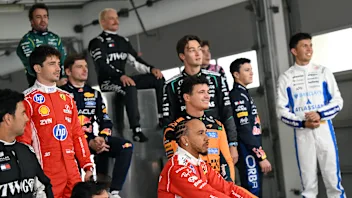 Our writers share their predictions for the 2026 season
Our writers share their predictions for the 2026 season.webp) ExclusiveDoohan on signing for Haas, his Alpine stint and what’s next
ExclusiveDoohan on signing for Haas, his Alpine stint and what’s next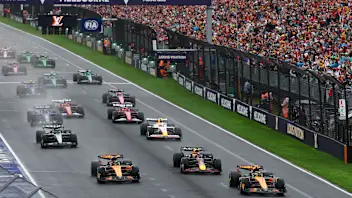 What time is the 2026 Australian GP and how can I watch it?
What time is the 2026 Australian GP and how can I watch it?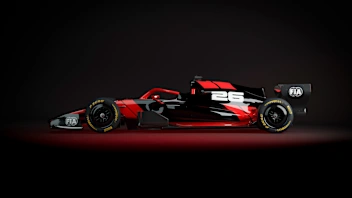 Meet Your Tech Director – F1’s newest AI expert
Meet Your Tech Director – F1’s newest AI expert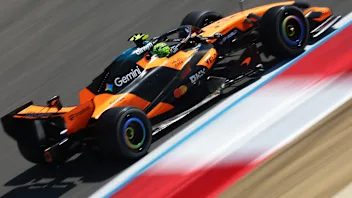 BettingConstructors' Championship betting predictions
BettingConstructors' Championship betting predictions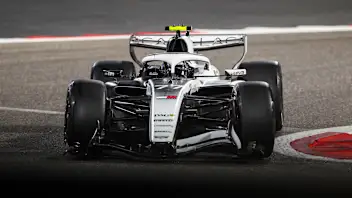 Cadillac confirm first upgrades for Australia debut
Cadillac confirm first upgrades for Australia debut